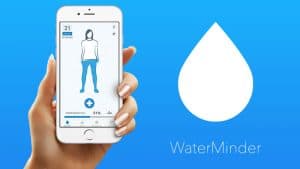 Nutrition Challenge Day 3: Meet Your Daily Water Requirements
Nutrition Challenge Day 3: Meet Your Daily Water Requirements
You’re doing AWESOME! Today is Day 3 of the 5-day Food and Fitness Challenge, and we’re going to find out exactly how much water we need to drink daily, and focus on getting it in.
Today you’ll also continue with the challenges from Days 1 and 2 – No-added Sugar, and make yourself a Green Smoothie – and don’t forget your exercises (see below)!
Don’t feel like you have to get these challenges “perfect” to keep progressing.
You are DOING IT RIGHT by coming here daily, watching the videos, reading the content and learning. Small daily changes are the secret to long-term success, so give yourself space to learn and integrate what sounds useful into your day to day life.
Water is one of those things that seems so simple so why would we need to talk about it, right? But it is just SO important to pay attention to. It’s one of the most essential components in the human body, making up 75% of all muscle tissue, and 10% of fatty tissue. It also transports nutrients (like sugar) through cells, and filters wastes.
(find today’s workout video challenge below!)
Are you dehydrated?

One of the most common causes of digestive problems, lymph congestion (your immune system), and the inability to naturally detoxify is dehydration.
If you exercise regularly, it is essential that you stay hydrated. Dehydration causes muscle fatigue and cramping, and the body’s ability to thermoregulate (maintain body temperature) is decreased.
Scientific evidence shows that moderate caffeine intake does not affect athletic performance (and can in fact slightly improve it) or hydration status, but alcohol consumption can interfere with muscle recovery from exercise, and negatively impact a number of other performance variables.
If you’re consuming alcohol regularly or drinking more than a cup of coffee daily, you need to be aware of the dehydrating effect they can have.
How do you know if you’re hydrated?
Probably the easiest and most common way to know if you’re hydrated is to monitor your urine. It should be pale yellow to clear, and you should be urinating on average 3-4 times a day.
The first sign of dehydration is thirst, followed by headache and fatigue. Many people who suffer from erratic energy are dehydrated. Severe dehydration symptoms include nausea, chills, increased heart rate, light headedness, and the inability to sweat. Medical attention is in order in those cases.
Benefits of hydration to your Body
- Your brain: Being well-hydrated ensures that your brain can get enough oxygen-rich blood, and keep you alert. Even mild dehydration (1-2% of bodyweight) can cause a lack of focus and inability to concentrate.
- Cells: water transports carbohydrates, vitamins, minerals and oxygen to the cells, which produce energy so we can function. Water also transports waste products and supports detoxification of our body.
- Digestion: water dissolves nutrients in our digestive tract, ensuring they can be absorbed into the bloodstream and reach the cells. Insufficient hydration slows digestion, and can lead to constipation.
- Heart: water ensures your blood pressure maintains a normal range. Dehydration causes your heart to work harder than it should to pump blood through your body, and can lead to a rise in heart rate, and fall in blood pressure.
- Kidneys: water is absolutely essential to the filtration of waste and excess nutrients through the kidneys, mostly via the urine. The kidneys regulate your body’s water level by increasing or decreasing the amount of urine you excrete, as well as controlling your sodium and electrolyte balance.
- Muscles and Joints: water lubricates and cushions joints, and keeps muscles working properly. 70-75% of muscle is made up of water. Hydration is essential to proper muscle function.
- Temperature: water is an important thermoregulator – maintaining the body’s temperature. When we are too hot, the body releases water in the form of sweat.
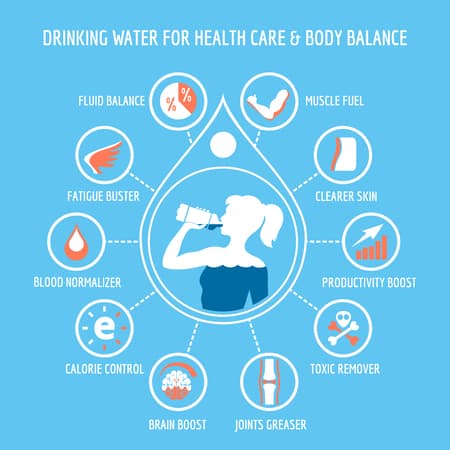
How much water do you need?
So, how much water do you need to stay hydrated? The Food and Nutrition Board recommends general guidelines by age and gender as follows:
Women: between the ages of 19-70 need 2.7 L per day on average (slightly higher during pregnancy and significantly higher during nursing)
Men: between the ages of 19-70 need 3.7 L per day on average
These amounts include “all beverages, including moisture in foods (high moisture foods include watermelon, meats, soups, etc)”
Which means you don’t necessarily need to drink 2.7 or 3.7 L of water daily, as some of your fluid needs will be met in the food you eat.
Beware of eating too many processed foods. The more whole foods – especially raw fruits and vegetables – the more water your body will intake from them.
Because we’re all made up a little differently, our water needs vary
Factors in your recommended daily intake include age, activity level and where you live (climate and altitude have an effect on how your body uses water). On a day you’re less active you won’t sweat as much, so you simply won’t need as much water.
Remember, the goal is to help the body maintain equilibrium of temperature, and support the many cellular activities going on at all times.
Carry your water bottle with you, and fill it up regularly.
Water App to Help you stay on track:
I use a neat app called Water Minder, that sends me an alert at set intervals throughout the day with nice messages that say things like, “Bree, it’s time for a nice glass of water” or “Have some water to stay hydrated.”
I often use the reminder as an opportunity to get up and do a quick stretch.
The Quality of your water makes a difference
You’re probably already using some kind of water filter at home, right? That’s really good. The Environmental Protection Agency (EPA) regulates about 100 contaminants in our tap water, but a study shows that there are over 300 harmful contaminants in tap water.
A 2003 study by the nonprofit Natural Resources Defense Council (NRDC) found that due to a combination of pollution and deteriorating equipment and pipes, the public water supplies in 19 of America’s largest cities delivered drinking water that contained contaminant levels exceeding EPA limits (either legal limits or unenforceable suggested limits) and may pose health risks to some residents. So even though it may test fine at its source, public water may still pick up contaminants on the way to your house.
Not to freak you out, but some of those contaminants include:
- Lead
- Chromium 6
- Disinfection Byproducts (Carcinogens)
- Herbicides & Pesticides
- Rocket Fuel
So we’re probably going to try to avoid tap water (btw here’s a cool page from the EPA where you can see how your tap water measures up according to your zip code). How about your refrigerator filter, or your pitcher water filter?
According to what I found online, a typical refrigerator water filter lasts for about 6 months, and doesn’t filter out much. Some manufacturers will say “doesn’t filter out the beneficial fluoride.” I personally don’t want to drink that.
A pitcher water filter can be a good option; it has a carbon filter that many contaminants are attracted to as they pass through – but it doesn’t filter out lead, bacteria, or viruses. If you use a water pitcher filter, you can get the best out of it by replacing that filter when you’re supposed to – and check the EPA’s guide to Water Pitchers to see what your filter actually filters out.
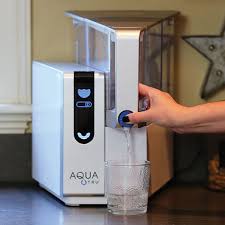
I personally use a combination carbon filter and reverse osmosis water filter in my home, it’s the best tasting water I’ve ever had and the system uses a 4-step process to remove about 128 toxic chemicals and gasses from tap water.
Check out the video on the website where the machine turns diet coke back into pure water – it’s crazy! I actually was so impressed with this water filter that I reached out to the company to ask them to work with me to make it more affordable for my readers, so you’ll see a nice discount on the page when you check it out.
Factors that influence fluid intake
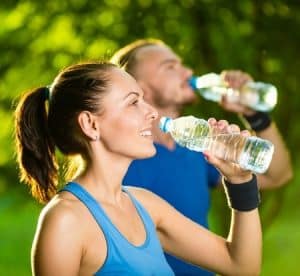
Pregnancy or breastfeeding requires more fluid intake.
Hot and humid weather, or hot indoor conditions that make you sweat also requires that you drink more water. Altitude higher than 8,200 feet can stimulate urination and increased respiration (breathing), which also require more fluid replenishment.
If you’re sick, or develop an infection focus on staying hydrated, and rehydrating (with the exception of some types of kidney, liver and adrenal disease which can impair the body’s ability to excrete water).
Remember what I said earlier about natural detoxification? Water helps transport and filter waste from our body. Staying hydrated will help protect you from getting sick, as your lymph drainage pathways will stay open and be able to do their natural filtering.
Remember to stay hydrated, today and every day to ensure your body is in an optimum state.
Workout Challenge Day #3: Abs and Upper Body
3 rounds
- Walking Plank (0:30)
- Sit Up Cross Punch (0:30)
- Biceps Curls to Reverse Flye (0:30)
- Side plank hip dip crunch (0:30)
- Dolphin push up to rotating plank (0:30)
Great job! Don’t forget to HYDRATE!
Love these workouts? Well I do too! I put workouts like these into my workout programs.
If you’re looking for one to follow, CLICK HERE!
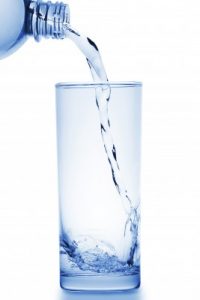 Nutrition Challenge Day 3: Meet Your Daily Water Requirements
Nutrition Challenge Day 3: Meet Your Daily Water Requirements